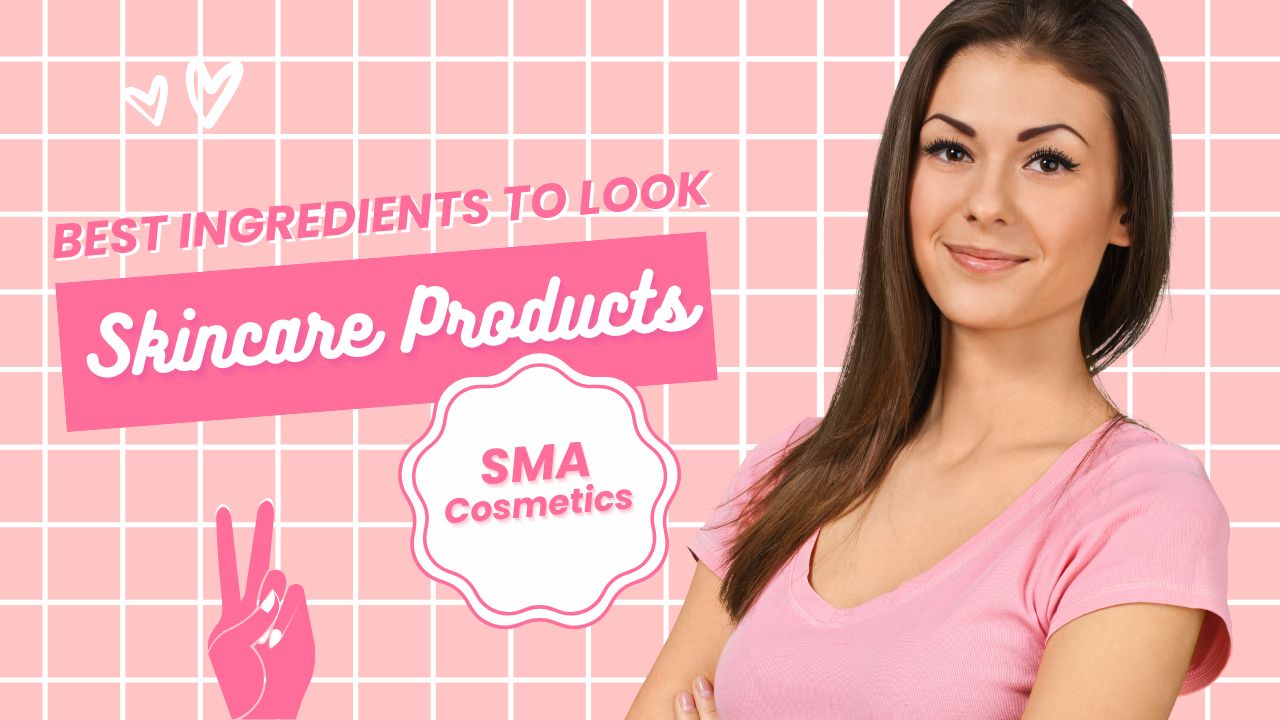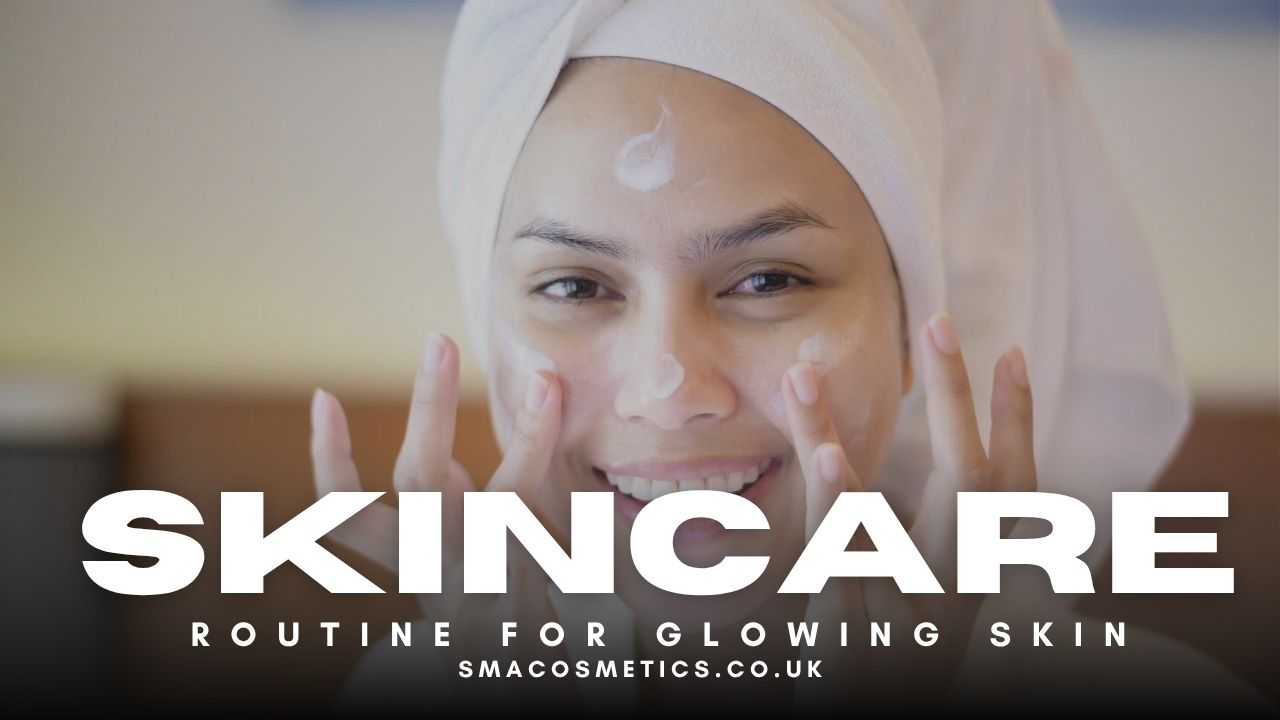
Best Ingredients to Look for in Your Skincare Products Your Complete Guide 2025
Discover the best ingredients to look for in your skincare products for glowing, youthful skin. Learn what works, why it matters, and how to build your effective skincare routine.
Introduction:
Are you overwhelmed by countless skincare products with fancy labels but still confused about what ingredients actually benefit your skin? Choosing the right skincare products is not about brands; it is about understanding the ingredients that work for your skin type and concerns.
In this guide, we will break down the best ingredients to look for in your skincare products, why they matter, and how to build an effective skincare routine that gives you glowing, youthful skin without confusion or waste.

Table of Contents:
- Why Ingredients Matter in Skincare
- Best Ingredients for Glowing Skin
- Best Ingredients for Acne-Prone Skin
- Best Ingredients for Anti-Aging
- Ingredients for Hydration and Moisture
- Common Skincare Ingredient Mistakes to Avoid
- FAQs
- Conclusion
1. Why Ingredients Matter in Skincare
The effectiveness of your skincare routine depends on the active ingredients in your products, not just the product labels. Using the right ingredients can help you address concerns like acne, dryness, dullness, hyperpigmentation, and signs of aging.
2. Best Ingredients for Glowing Skin
When it comes to achieving glowing, healthy skin, using the right ingredients in your skincare routine can make all the difference. Vitamin C is a powerful antioxidant known for brightening the skin, reducing dark spots, and protecting against environmental stressors, leaving your complexion radiant and even-toned.
Niacinamide, a form of vitamin B3, helps improve skin texture, reduces redness, and addresses uneven skin tone, making your skin appear smoother and more balanced. Additionally, Alpha Hydroxy Acids (AHAs), such as glycolic acid and lactic acid, provide gentle exfoliation by removing dead skin cells, promoting cell turnover, and revealing a fresher, brighter layer of skin underneath.
Incorporating these ingredients into your skincare routine can help you achieve a naturally luminous glow while improving your skin’s overall health.
- Vitamin C:
- Brightens skin, reduces dark spots, and provides antioxidant protection.
- Niacinamide:
- Improves skin texture, reduces redness, and helps with uneven skin tone.
- Alpha Hydroxy Acids (AHAs):
- Gentle exfoliation for brighter skin by removing dead cells.
Best Ingredients for Acne-Prone Skin
When it comes to caring for acne-prone skin, choosing the right ingredients can make all the difference in achieving clearer, healthier skin. Salicylic acid is a powerful beta-hydroxy acid that penetrates deep into the pores, helping to unclog them while reducing acne and preventing future breakouts.
Another effective ingredient is benzoyl peroxide, known for its ability to kill acne-causing bacteria and reduce inflammation, making it ideal for treating active breakouts.
For those seeking a natural alternative, tea tree oil offers gentle yet effective antibacterial properties that can help manage mild acne without over-drying the skin. Incorporating these ingredients into your skincare routine can significantly improve the clarity and overall health of acne-prone skin.
- Salicylic Acid:
- Helps unclog pores, reduces acne, and prevents future breakouts.
- Benzoyl Peroxide:
- Kills acne-causing bacteria and reduces inflammation.
- Tea Tree Oil:
- Natural antibacterial properties effective for mild acne.
Best Ingredients for Anti-Aging
When it comes to maintaining youthful, healthy skin, choosing the right ingredients in your skincare routine is essential. Retinol is one of the most powerful anti-aging ingredients, known for its ability to boost collagen production, reduce fine lines, and improve skin texture, helping your skin appear smoother and more radiant over time.
Peptides are another essential ingredient, as they support the skin’s structure and firmness, promoting elasticity and reducing the appearance of sagging. Additionally, Vitamin E, a potent antioxidant, plays a vital role in protecting the skin barrier against environmental damage while providing nourishment and hydration. Incorporating these ingredients into your routine can help slow down visible signs of aging, allowing your skin to stay firm, smooth, and youthful.
- Retinol:
- Boosts collagen production, reduces fine lines, and improves skin texture.
- Peptides:
- Support skin structure and firmness.
- Vitamin E:
- Antioxidant that protects the skin barrier.
Ingredients for Hydration and Moisture
Achieving deeply hydrated, plump, and healthy skin starts with using the right ingredients. Hyaluronic acid is a powerhouse humectant that provides deep hydration by attracting and holding up to 1000 times its weight in water, leaving your skin visibly plump and smooth.
Ceramides are essential for restoring and strengthening the skin barrier, helping your skin retain moisture while protecting it from environmental stressors. Glycerin, another effective humectant, draws moisture from the environment into your skin, providing long-lasting hydration and maintaining softness throughout the day.
Together, these ingredients ensure your skin stays nourished, supple, and resilient, forming the foundation of an effective skincare routine for lasting glow and health.
- Hyaluronic Acid:
- Deep hydration and plumping effect for the skin.
- Ceramides:
- Restore the skin barrier and retain moisture.
- Glycerin:
- Draws moisture into the skin for long-lasting hydration.
Common Skincare Ingredient Mistakes to Avoid
When building your skincare routine, it’s essential to understand how ingredients interact to protect your skin’s health and avoid setbacks. One common mistake is mixing vitamin C with retinol in the same routine, which can cause irritation and reduce the effectiveness of both ingredients.
Another frequent error is overusing exfoliants like AHAs and BHAs, which, while great for removing dead skin cells, can damage your skin barrier and lead to dryness and sensitivity if used excessively. Additionally, layering too many active ingredients without understanding their interactions can trigger breakouts, redness, or inflammation.
Finally, skipping sunscreen while using active ingredients like retinol or acids increases your skin’s sensitivity to the sun, which can cause pigmentation and diminish the benefits of your products. By using actives wisely and always applying sunscreen during the day, you can achieve healthier, glowing skin without risking damage.
- Mixing Vitamin C with Retinol in the same routine can cause irritation.
- Overusing exfoliants like AHAs and BHAs can damage the skin barrier.
- Using too many active ingredients without understanding their interaction can lead to breakouts or sensitivity.
- Skipping sunscreen when using active ingredients increases sun sensitivity and reduces product effectiveness.
FAQs
Can I use vitamin C and niacinamide together?
Yes, they can be used together for enhanced brightening and texture improvement.
Is retinol suitable for sensitive skin?
Start with a low concentration and use it 2-3 times per week to allow your skin to adjust.
How long does it take to see results from skincare ingredients?
It typically takes 4-6 weeks of consistent use to see visible improvements.
What should I apply first, serum or moisturizer?
Apply serum first, followed by moisturizer to lock in hydration.
8. Conclusion
Choosing the best ingredients to look for in your skincare products can transform your skin, helping you achieve a radiant, youthful glow. Whether your goal is anti-aging, hydration, or clear skin, understanding these ingredients will empower you to build a skincare routine that truly works.
Ready to upgrade your skincare routine? Explore our detailed skincare product reviews and personalized skincare routine guides to start your journey towards healthier, glowing skin today!






Add a review
Your email address will not be published. Required fields are marked *